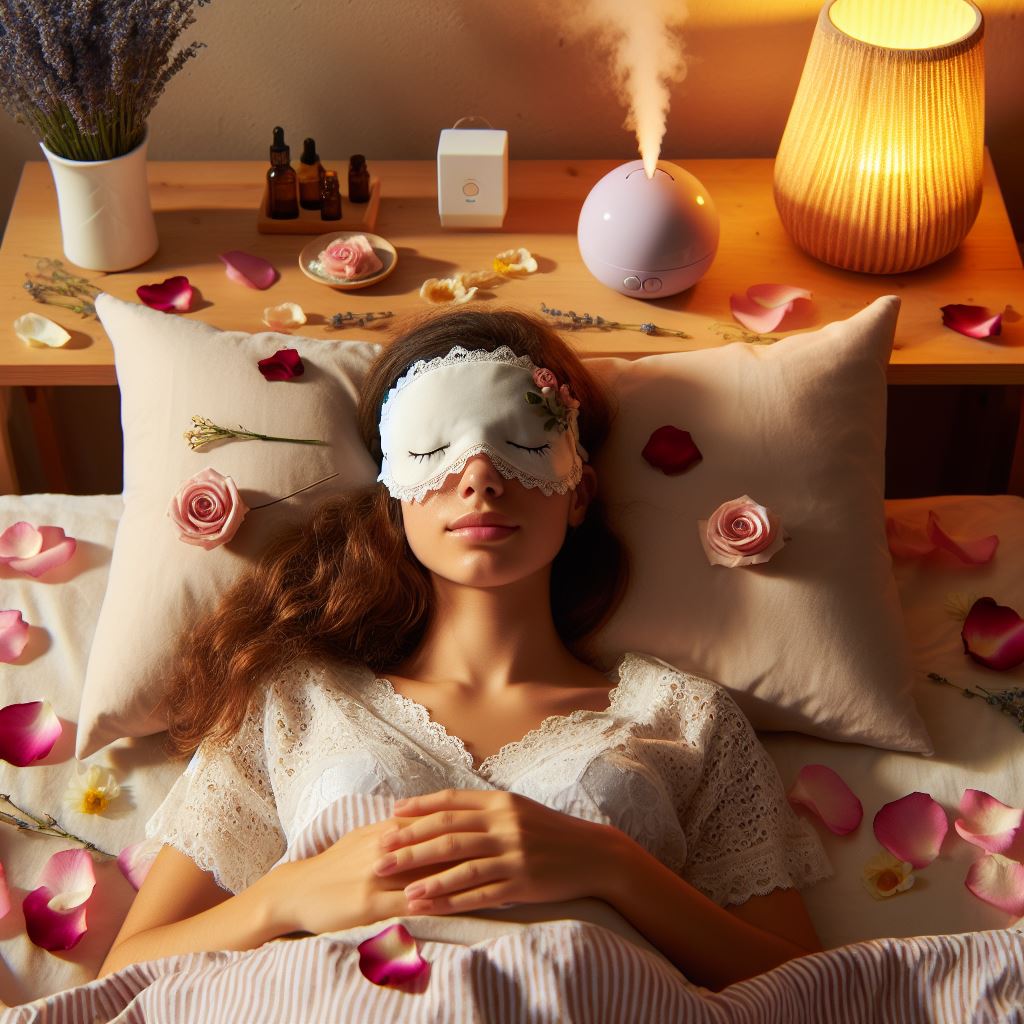Insomnia and Aromatherapy
Learn how aromatherapy can help insomnia.

Insomnia and Aromatherapy: A Natural Path to Restful Sleep.
Insomnia, characterized by difficulty in falling asleep, staying asleep, or having unrefreshing sleep, can significantly impact one’s quality of life. This common sleep disorder affects millions of individuals worldwide, leading to chronic fatigue, mood disturbances, cognitive impairment, and a host of physical health issues. While pharmacological treatments are available, many sufferers seek alternative remedies due to concerns over side effects and dependency associated with prolonged use of sleeping pills. Among these alternatives, aromatherapy has gained considerable attention for its potential to promote relaxation and improve sleep quality.
Aromatherapy, the practice of using essential oils extracted from plants for therapeutic purposes, has roots dating back to ancient civilizations. Essential oils such as lavender, chamomile, bergamot, and ylang-ylang are commonly associated with sleep enhancement and have been studied for their relaxing and sedative properties. These oils can be administered in various forms, including inhalation, massage, and bathing, making aromatherapy a versatile and accessible treatment option.
Lavender essential oil is perhaps the most renowned for its role in promoting sleep. Scientific studies have shown that inhaling lavender essential oil can reduce heart rate and blood pressure, creating a calming effect that facilitates sleep onset. It is believed to interact with the neurotransmitter GABA (gamma-aminobutyric acid) in the brain, which helps to suppress nerve activity and promote relaxation. In one study published in the journal 'Holistic Nursing Practice', participants who used lavender oil reported significant improvements in sleep quality compared to a control group.
Chamomile, another popular essential oil, has been used for centuries as a natural remedy for insomnia. It contains apigenin, an antioxidant that binds to specific receptors in the brain that may decrease anxiety and initiate sleep. A study in the 'Journal of Advanced Nursing' found that chamomile extract significantly enhanced sleep quality among elderly adults.
Bergamot essential oil, derived from the bergamot orange, is also noted for its potential to alleviate insomnia. It possesses anxiolytic (anxiety-reducing) effects, which can help ease restless minds and prepare the body for sleep. Similarly, ylang-ylang oil has been found to have sedative effects that can help reduce blood pressure, alleviate anxiety, and promote calmness.
To integrate aromatherapy into a nightly routine, one can use essential oil diffusers, apply diluted oils topically, or add a few drops to a warm bath. Establishing a consistent pre-sleep ritual with aromatherapy can reinforce the body’s natural sleep-wake cycle and create an environment conducive to restful sleep.
While aromatherapy alone may not be a panacea for insomnia, it can be a valuable component of a holistic approach to sleep management. Combining aromatherapy with good sleep hygiene practices—such as maintaining a regular sleep schedule, creating a comfortable sleep environment, and limiting exposure to screens before bedtime—can enhance the overall effectiveness of this natural therapy. For persistent or severe insomnia, it is essential to consult with a healthcare provider to explore comprehensive treatment options.
In conclusion, aromatherapy presents a promising and natural avenue for those seeking relief from insomnia. By harnessing the calming properties of essential oils, individuals can find a soothing respite from the grip of sleepless nights and pave the way to more restorative and rejuvenating sleep.